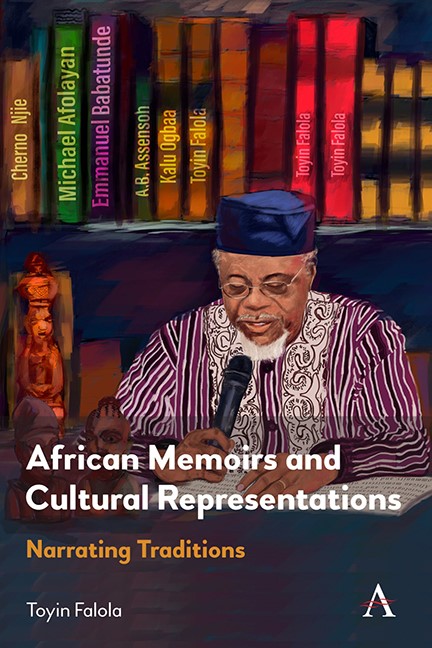Book contents
- Frontmatter
- Contents
- List of Figures
- Dedication
- Acknowledgments
- Preface
- Chapter One Mirror Effect: Narrating the Self through Traditions and Cultures
- Chapter Two The Universal and the Particular in African Memoirs
- Chapter Three The Portraiture of Womanhood in Emmanuel Babatunde’s An African Journey through Celibate Priesthood to Married Life
- Chapter Four Politics, Philosophical Representation, and Culture in Cherno Njie’s Sweat Is Invisible in the Rain
- Chapter Five The Yoruba Worldview, Meanings, and Ideals of Life in Michael Afolayan’s Fate of Our Mothers
- Chapter Six The Indelibility of Igbo Tradition (Home) in Kalu Ogbaa’s Carrying my Father’s Torch
- Chapter Seven Experiences, Reflections, and Refractions on the Cusp in A. B. Assensoh’s A Matter of Sharing
- Chapter Eight Toward a Spatial and Identity Synthesis: Regional Peculiarities in African Memoirs
- Bibliography
- Index
- Frontmatter
- Contents
- List of Figures
- Dedication
- Acknowledgments
- Preface
- Chapter One Mirror Effect: Narrating the Self through Traditions and Cultures
- Chapter Two The Universal and the Particular in African Memoirs
- Chapter Three The Portraiture of Womanhood in Emmanuel Babatunde’s An African Journey through Celibate Priesthood to Married Life
- Chapter Four Politics, Philosophical Representation, and Culture in Cherno Njie’s Sweat Is Invisible in the Rain
- Chapter Five The Yoruba Worldview, Meanings, and Ideals of Life in Michael Afolayan’s Fate of Our Mothers
- Chapter Six The Indelibility of Igbo Tradition (Home) in Kalu Ogbaa’s Carrying my Father’s Torch
- Chapter Seven Experiences, Reflections, and Refractions on the Cusp in A. B. Assensoh’s A Matter of Sharing
- Chapter Eight Toward a Spatial and Identity Synthesis: Regional Peculiarities in African Memoirs
- Bibliography
- Index
Summary
Regardless of their race and social-political orientation, African scholars, journalists, and other writers of African experience tend to portray the people of this region as a single entity, homogenized by cultural practices, social formation, and political development. In this light, many in the West—usually the half-informed population— think of Africa as a country. Yet, Africa is a continent located in the middle of world civilizations with multiple cultures and traditions, practices, and people, as well as tongues and governments cutting across fifty-five recognized modern sovereign states with different geographical features.
By implication, the complexity of understanding “Africa” lies in divergent, exciting features. Whereas the above points to multiple space factors in this complex web, another vital point is the time consideration. When we discuss African cultures and civilizations, from which epoch of their consistent evolution are we concerned? This takes us back to the matter of space. Africa is vastly divided between two regions: the Maghreb and sub- Saharan. As early as circa AD 622, Islam had been a dominant force in the Maghreb region of Africa, perforating the social fabrics and steering the political wheel of the civilizations founded in that area. It was not until around the twelfth century that Islam and its cultural assets infiltrated the sub-Saharan part of Africa, having a significant effect on the people’s culture and organization.
Compared to the Maghreb region, Islam had a less, if not substantial, effect on sub-Saharan Africa. Islam did not thoroughly spread across the states of the area until the twentieth century. In fact, in many of these modern states in Central and Southern Africa, the proportion of the Muslim population is smaller. In addition, those in the northern part of the continent (the Maghreb), for several reasons like color, cultural mores, and geopolitical advantage, consider themselves more Arab than African. The region’s government could even choose to identify with Africa on one occasion and Arab on another. Then comes the Europeans with a taxonomy of modernity embedded in religion and religious practices, and considering that religion is a culture, the foregoing becomes clearer.
Taking its place in the heart of Africans, Christianity began to shape and guide the evolution of many of the states in the continent from the nineteenth century.
- Type
- Chapter
- Information
- African Memoirs and Cultural RepresentationsNarrating Traditions, pp. vii - xiiiPublisher: Anthem PressPrint publication year: 2023



